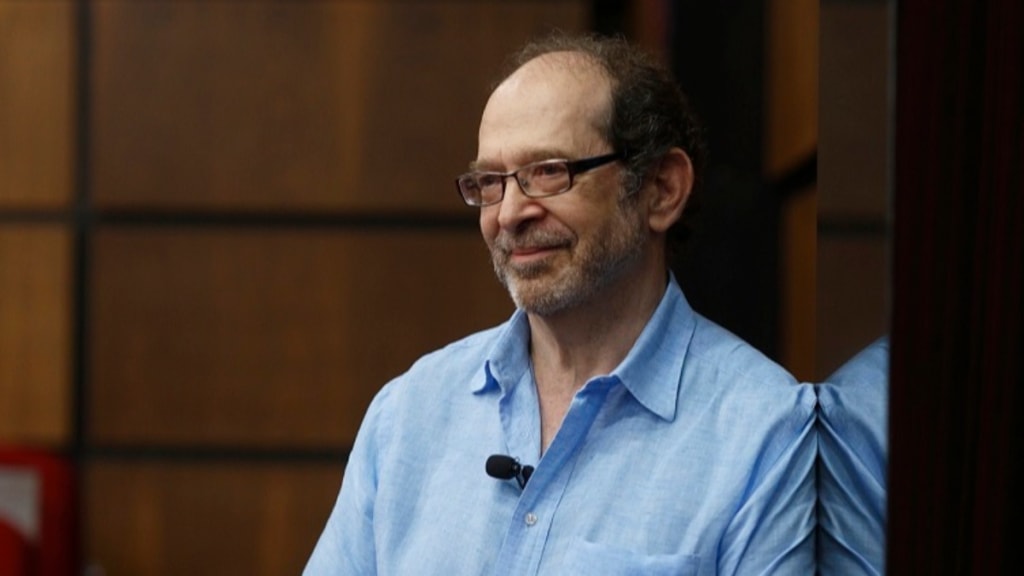
When you take a look at Steve Kaplan, be aware his simplicity buries his expertise and experience, because he's been the leading expert on comedy in the entertainment industry for the last 15 years. His Comedy Intensive Workshop reaches thousands of students globally.
It's most likely, that you've loved a comedy production by any one of Steve's alumni. And he deserves all the credit too because he's been doing comedy for such a long time. Steve has taught 100's of people about comedy. Some writers. Some were directors or actors. There were writer-directors, and writer-performers, and actor-directors, and even a few writer-actor-directors. A few might have just been hyphens. This is an insight into his beginnings, an origin story.
For most of his professional life, Steve Kaplan has been deeply involved in exploring the art of comedy and in the development and training of comic writers, actors, and artists.

Because of comedy, I’ve had the opportunity to co-found and run the Off-Broadway theater that premiered the early works of David Ives, Howard Korder, and Ken Lonergan, says Steve.
Because of comedy, I’ve worked with—as a producer, director, or teacher—a host of amazing people: Michael Patrick King (Sex and the City), Nathan Lane, John Leguizamo, Peter Tolan (The Gary Shandling Show, Rescue Me), David Crane (Friends), Jack Black, Oliver Platt, Nia Vardalos, Kathy Griffin, Tamara Jenkins (The Savages), Sandra Tsing Loh, and many, many others.
Because of comedy, I’ve taught at the Yale School of Drama, NYU, and UCLA, as well as at Disney, Dreamworks, and Aardman Animation.
Because of comedy, I’ve traveled around the world, lecturing and giving workshops in Los Angeles, New York, Vancouver, Toronto, London, Rio, Mumbai, Moscow, Tel Aviv, Kiev (or Kyiv), New Zealand, Melbourne, Sydney, and even Singapore.

It all started when I was a kid. I fell in love with comedy. But while my peers in middle school were settling for the slapstick fun of Soupy Sales and the Three Stooges, my tastes were leaning towards the anarchic Marx Bros. and the 40s era hipster-quipster Bob Hope (I couldn’t for the life of me figure out why Bing seemed to get all the girls in the Road movies just by singing).
I loved Laurel and Hardy, W.C.Fields and Danny Kaye ('The pellet with the poison's in the vessel with the pestle; the chalice from the palace has the brew that is true!'), and the Dick Van Dyke Show, and through the subversive humor of Get Smart, became a fan of Mel Brooks, who I later discovered was also the "2,000-Year Old Man". I have to admit that I wasn’t yet a fan of the great silent classics, but I’m proud to point out that, even at 13, my love of "The Three Stooges" extended only to Shemp, who I thought alone exhibited the heart, compassion and bewildered sweetness that was the hallmark of great comedy and was lacking in "Moe, Larry, and Curley". I was Looney Tunes all the way; the Disney cartoon shorts were for Yankee fans, i.e. conformists and front runners.

You might assume that following this natural progression that I would naturally develop into a legendary Class Clown. Alas, it turned out that I was the mime or prop comic of Class Clowns: more annoying than funny. But like Thomas Edison failing to invent the light bulb a thousand times, it turns out that I was discovering a myriad of ways not to be funny.
After studying theater at university, I headed to Manhattan (it wasn’t very far; I was living in Queens) to jumpstart my—very short, as it turned out—career as a comedic actor. I was young and judgmental and thought I knew it all. After watching a show, I would always point out the mistakes the director and playwright made. Exasperated, my girlfriend finally told me, “If you think you know so much, why don’t you try directing something yourself?” So I did, and I found out that directing was something I liked. It was a lot more fun telling people what to do than being told what to do by someone else. It was also something that I seemed to be good at, which I have to admit was as much a surprise to me as to anyone else. The shows I directed tended to be comic, whether that was the author’s intention or not (sorry, Agatha Christie!)

One actor in that forgotten Agatha Christie mystery I directed thought he saw something special in me and he, along with an actress friend of his, approached me about starting a theater company. I don’t think they had much of an idea or a clear vision of what they wanted the theater to be, only that they were tired of being powerless overcasting and their careers. That was alright with me. I’d happily cast them both as Hamlet in alternating rep if it made them happy. As for me, I had been given the opportunity I had been waiting for: a chance to start a theater totally focused on comedy.
Not that I knew much about comedy. Actually at that time, in my mid-twenties, I thought I knew EVERYTHING there was to know about comedy. I know better now.) What I did know was that I was so tired of all the humorless, self-serious theater that was prevalent at that time. Saturday Night Live had already been on the air for some time, and there was a renaissance in comedy everywhere, except in the small developmental theaters in New York. Back then, New York theater took itself pretty seriously (if I never see another production of The Three Sisters with everyone all in black turtlenecks, it’ll be too soon). Theater was for important, meaty fare—certainly not comedy! Evenings at the theater were long, lugubrious treks through the humorless angst of a heretofore unproduced playwright, often in the company of five or six other uncomfortable theater-goers.

So when I had the chance, I wanted to have a whole theater completely devoted to comedy—one that would be an antidote to self-important, self-indulgent theater. Somehow I convinced my friends to do just that. We called it Manhattan Punch Line, a theater completely devoted to comedy, and despite our utter lack of business, managerial, or financial knowledge or expertise, it ran for over 13 years. Over that time, I directed, developed, and/or produced hundreds of plays (and even acted in a few of them), readings, sketches, improv shows, and stand-up evenings, and we surround ourselves with some of the funniest people on the planet—John Leguzamo, Nathan Lane, Oliver Platt, Rita Rudner, Nathan Lane, and Mercedes Ruehl; David Crane, Michael Patrick King, Kenneth Lonergan, and Peter Tolan; David Ives, Christopher Ashley, and Mark Brokaw. And I discovered that there were some things that I didn't know about comedy. Like everything.

Some nights we got laughs, and some nights we didn’t. I began to wonder why something that was incredibly funny on Thursday night would get no laughs on Sunday. Why sometimes the funniest performance of a play was at its very first table read? What was going on here? That’s when I started seriously exploring the art and the science—some would even call it the physics—of comedy.
At the time, I was teaching an improv class. Without telling the actors, I started experimenting with them—devising improv games to get at the core of comedy: how it works, why it works, what's going on when it stops working, and what the hell can you do about it?
These experiments led to the discovery of a series of techniques, which in turn led to a forty week Master Class in comedy. The class was taught to a selected group of performers/writers that was connected to the theater called the “Comedy Corps.” Oliver Platt came out of the Comedy Corps, as did writers Tracy Poust (Will and Grace), Howard Morris (Home Improvement, According to Jim) David Fury (Fringe, Buffy, The Vampire Slayer, Pinky and the Brain), and others.
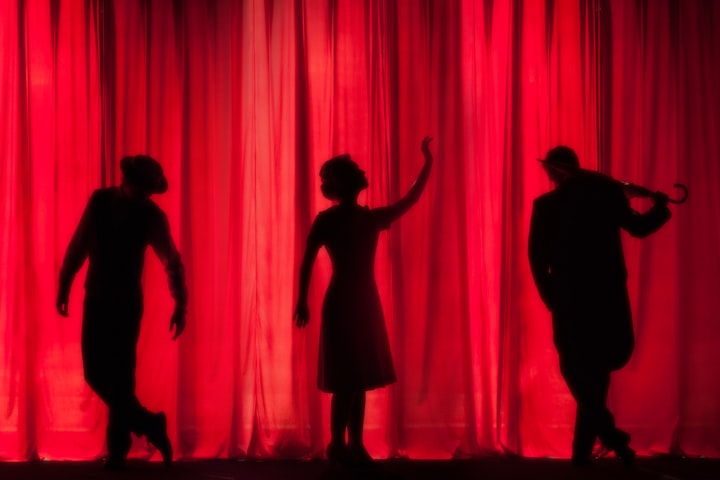
When I moved to LA, I continued teaching the class to actors. But given the . . . uh, shall we say . . . reduced attention span of the inhabitants of L.A., I began to condense the forty-week class into a single two-day course. I also started noticing that a few of the actors were unaware of some of the classic comedy references I made during the class, so I started showing clips from the films and TV shows I used to illustrate some of the main points of the lecture. Soon the clips became an integral part of the workshop, and a fun teaching tool to boot. A friend suggested that I could offer the same material, only geared towards writers. “You could be the Robert McKee of comedy!” was I think how Derek put it. “Besides,” he added, “actors are always broke, anyhow.” Despite that dig towards actors—I love actors; I married an actress—I decided to take him up on it.
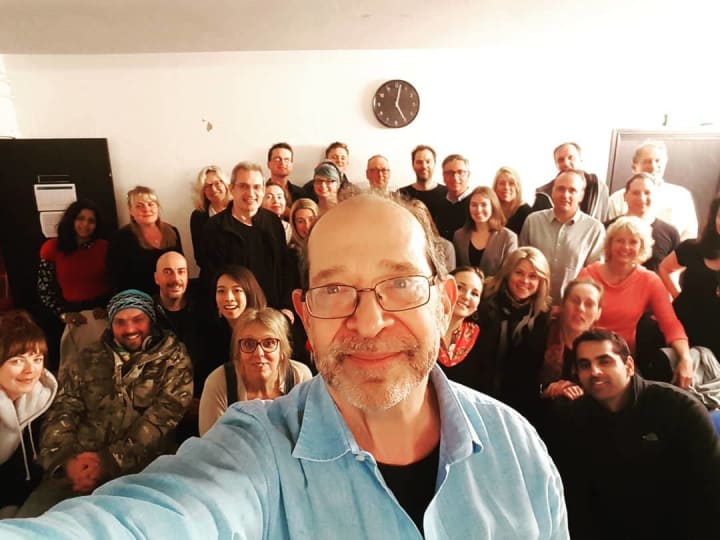
The seminar was called the Comedy Intensive, a two-day workshop geared mostly to writers but also regularly attended by directors, producers, actors, and animators (many coming from studios like Disney and DreamWorks). The class retained a lot of the flavor and fun from the original days when I was experimenting with Method-trained actors discovering new approaches to comedy.
As more and more people started attending the Intensive, some of them would ask, “So where’s the book?”
At first, I thought to myself, "There must be dozens of books on comedy. Who am I to write another one?” But then, when I actually looked into it, I realized that while there were books on how to be a stand-up comic, or on improvisation or theater games, there were few books that offered a serious analysis of comic theory and its practical application for writers, directors, and actors.
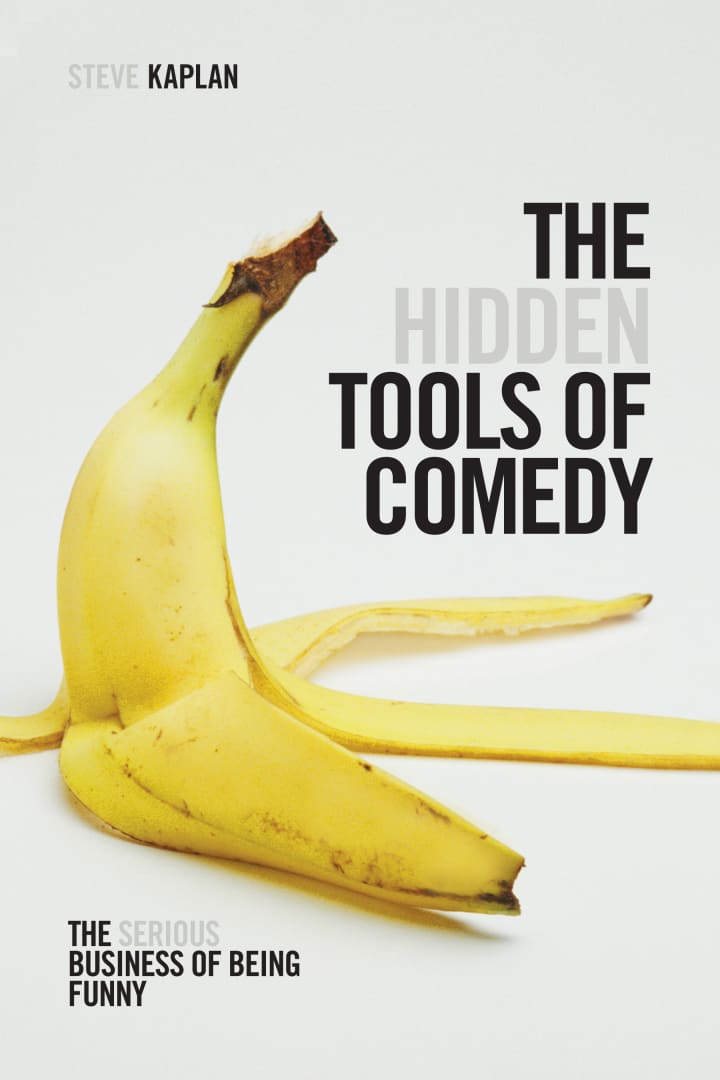
"Why don't you write a book?" people would ask. So I wrote a couple. First came The Hidden Tools of Comedy. These were principles that you were probably not taught in university or college or conservatories, but are tools that make comedy work. They’re doubly useful because more important than knowing how to make something funny—which all of us have done to one extent or another—is knowing what to fix when it’s not funny. Because that’s the real problem, isn’t it? We’re slogging through Act II, and something just not working. You’re in your writers’ group, listening to a section of your script read out loud, and the laughter is polite but no more than that. The book focused on what comedy is, how it works, why it works, and most importantly, what can you do to fix it when it’s not working. That was followed by The Comic Hero’s Journey, a look at story structure from the comic perspective. There’s a third in there somewhere, if I live long enough.

Steve’s alumni have written or co-written comedies such as Ugly Betty, Silicon Valley, Insecure, Mom, Please Like Me, Big Love, House of Lies, Superstore, Everybody Loves Raymond, Hairspray with John Travolta, The Heartbreak Kid with Ben Stiller, Rescue Me, The Class, Tenacious D, Mean Girls 2, Friends, Sex and the City, Mr. Show, SNL, The Daily Show w/Jon Stewart, Will & Grace, Joey, Late Night with Conan O’Brien, Kathy Griffin: “Strong Black Woman” special, Many Others!
Other alumni have been nominated for 43 Emmy Awards, 6 WGA Awards, 3 Golden Globes, 1 Academy Award, 5 SAG Awards, 1 American Comedy Award. And they’ve won 10 Emmys, 1 Oscar, 2 WGA Awards, the American Comedy Award, and more!
About the Creator
Dapo
I write about personal ideas, experiences or researched concepts. I publish "indieactivity" - an independent filmmaking publication for filmmakers.

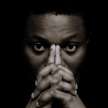




Comments
There are no comments for this story
Be the first to respond and start the conversation.